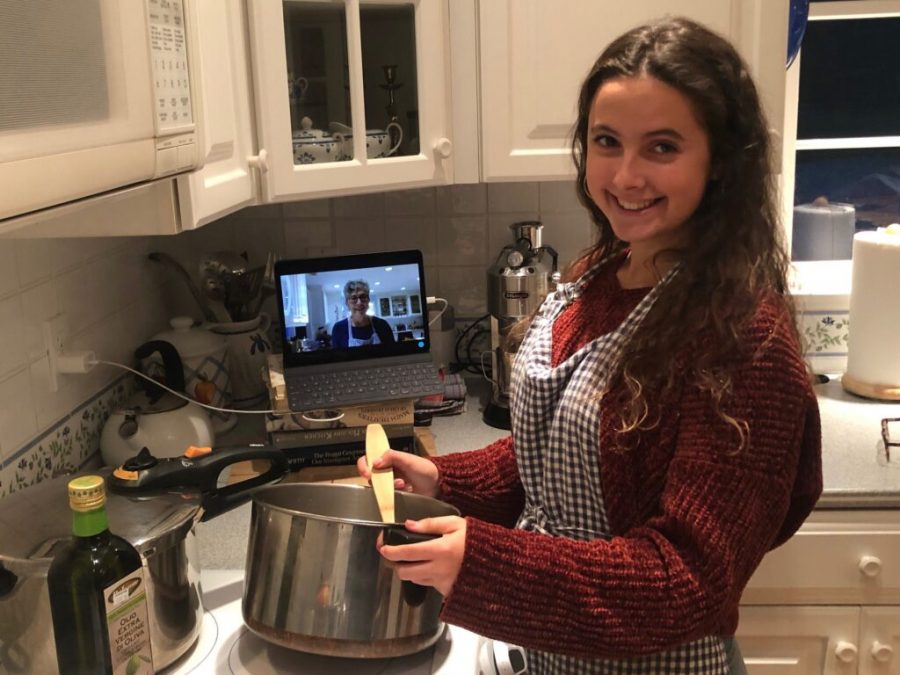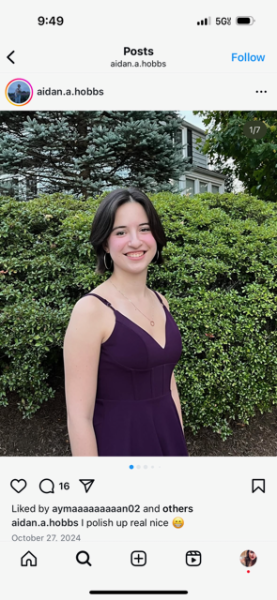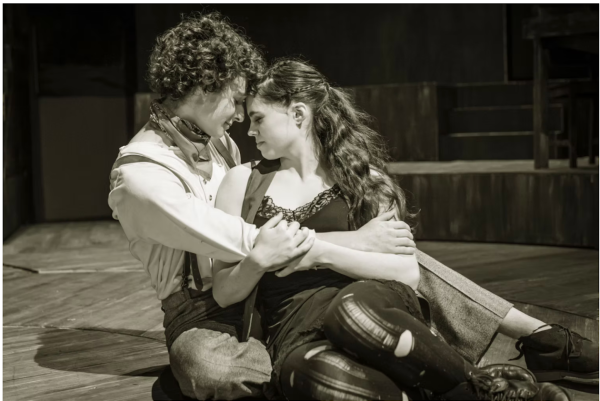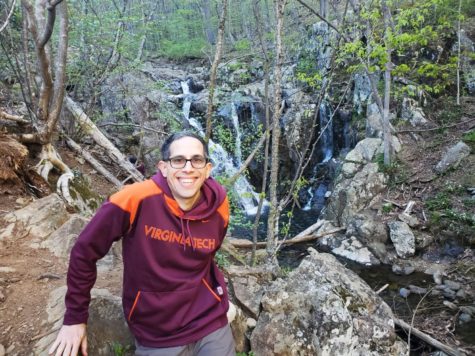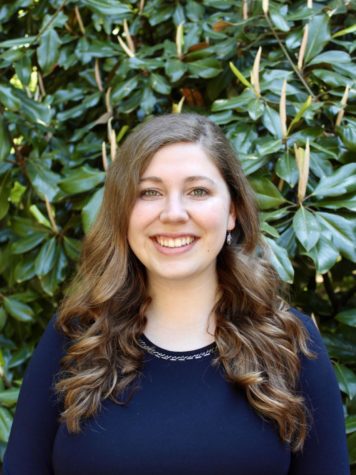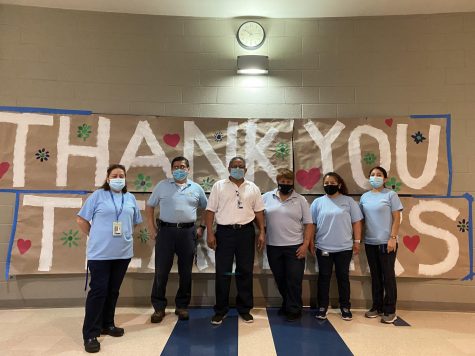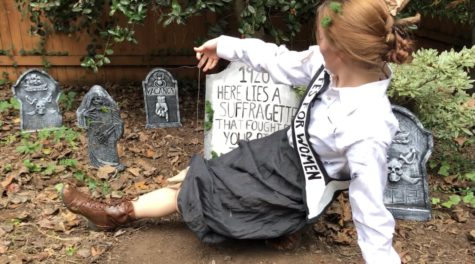Making meals and memories
Senior Rachel Brill and her grandmother cooked over Zoom through the pandemic
Brill and her grandmother cook Shabbat dinner via Zoom. They prepared dishes from all over the world, from Vietnemese spring rolls to fish cakes.
It is Friday — Shabbat dinner for senior Rachel Brill and her family — a meal where the family will eat together to celebrate the Jewish day of rest. Brill grabs a blue checkered apron, pans from her white cabinets, her computer and settles in to create a meal. Before she creates homemade challah or stuffed peppers, she calls her paternal grandmother, Martha Brill (77), on Zoom. Her grandmother answers, ready with the same ingredients Brill has prepared for her dish.
Together, they cook, asking questions — “Do you think this has cooked long enough?” — and talk about their weeks. Once they finish, they blow kisses to each other, sign off and eat their own dish separately with each of their immediate family members.
“It’s actually my dad that came up with the idea, and I pitched to [my grandma] and she agreed,” Brill said. “The idea was that she and I — even though she lives in Boston and I live in Arlington — we agree on a recipe every Friday, and we will get the ingredients separately and then we would Zoom and make the recipe together.”
Brill’s father came up with the idea after the pandemic began in March. Brill’s grandparents followed a strict lockdown during the pandemic, so although Brill was used to cooking with her grandmother, particularly during holidays, she knew they wouldn’t be able to cook together in the same way as before.
“She and I are very close and we couldn’t see each other for over a year, [so] I didn’t want to lose that connection,” Brill said. “I just thought that she would really enjoy getting to do this with her granddaughter, and I enjoyed getting to do it with her, too. I just wanted our friendship and our relationship to continue to strengthen, even if we couldn’t see each other or celebrate the holidays together like we were used to.”
Brill and her grandmother tried recipes from around the world, some too adventurous to work, but also came back to her family’s roots in Judaism.
“[My grandma] grew up Jewish, and some of the recipes [we made] I’d never had before, but she said, ‘Oh, I grew up eating this,’” Brill said. “Her Jewish grandparents had these old traditional dishes that she ate growing up, and she hadn’t had them since she was a kid, so it was cool for me and her to revisit those recipes.”
Brill considers herself a foodie, and treats a meal as an experience more special than simply eating for survival. She said her grandmother lived in a more traditional household where she cooked for her family members, which could have made cooking feel like a chore.
“I think that this experience with her kind of reminded her that cooking can be fun,” Brill said. “Cooking is meaningful; it isn’t just about doing work or feeding people, but it’s about the experience, the journey, the sharing and the memories. I feel like that was one of the reasons that was special to her, because it reminded her that she’s not cooking because she’s a woman in a patriarchal household, she’s cooking because she enjoys it and it’s a special way for her to connect with her family.”
For Brill’s grandmother, it was not only her passion for cooking that was explored during the pandemic because of her granddaughter, it was also her love for writing. The senior Brill reflected on the experience of this COVID-cooking tradition in writing and submitted it to Hadassah, a Jewish women’s magazine.
“We do indeed touch without touching,” she wrote.


